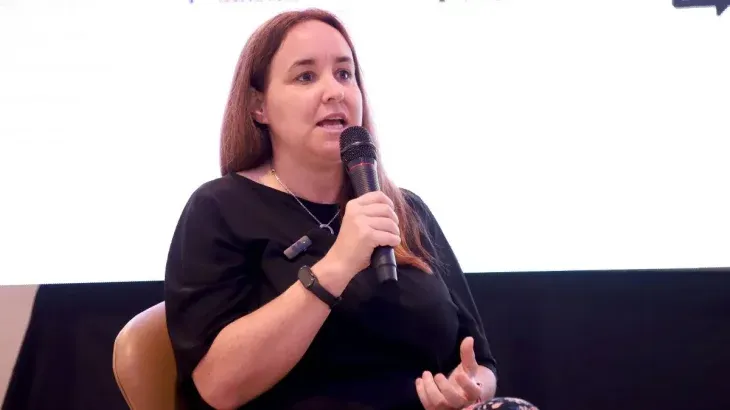The Argentine economy will have to face great challenges after the November 19 runoff. In a country with a very high external debt, more than 140% year-on-year inflation, differentiated exchange rates for different productive sectors and salaries that lose purchasing power month after month, the next Government must make immediate economic decisions.
On November 19, voters must go to the elections and define who will be the next president of Argentina, the official and Minister of Economy, Sergio Massawhich defends the peso, or the libertarian and far-right Javier Mileiwhich proposes dollarizing the economy, without having dollars, or even having negative reserves from the Central Bank.
Although this note is not going to focus on the political scenario, it is essential to understand it to also know what challenges the next President of the Nation faces and, in turn, demand them. All actors in society should demand these changes because they generate a more stable country for everyone.
He Buenos Aires Herald organized a talk at Idea Machine call: “The economic challenges post 10 D: what now?”in which they participated Milagro Gismondieconomist Empiria Consultants and former Chief of Staff of the Province of Buenos Aires during the administration of Hernan Lacunza; and Leandro Ziccarelliauthor of Financial, Monetary and Irreverent podcast and current director at Nación Bursátil. Moderation was carried out by Estefania PozzoDirector of that medium.
There, the specialists presented the main challenges that the new government will have to face in economic matters from day 1. Among them, there is a very important one that was under discussion during the first part of the campaign: a stabilization plan. But, in addition to stabilizing the economy, it is necessary to implement a economic program and carry out several reforms, some of them too ideological.
1) Stabilization of the economy
Currently, the single anchor economic seems to be political (Sergio Massa) to reach November 19. For this reason, Ziccarelli and Gismondi indicated that the next Government must propose a economic program and a stabilization plan on November 20, immediately after the election.
For inflation, they maintain that an orthodox stabilization plan is necessary. “We need a kind of national agreement where what should be done is correct relative prices, since a good part of why this macro is not working is because it has all the prices backwards. Then you have to correct the price set, and then modify all the incentives of the economy. In addition to the price correction, stabilization plans come with a kind of freeze and then it falls apart,” explained the author of the Financial, Monetary and Irreverent podcast.
All of these measures have a political cost, Ziccarelli warned, which is why he predicted that probably in 2025 the ruling party (at that time) will not obtain a positive result in the midterm elections.
Leandro Zicarelli.jpg
Mariano Fuchila
2) Implement an economic program
Accompanied by the Stabilization Plan, the next government should carry out a economic program comprehensive, with a focus on fiscal, monetary and financial aspects, according to Ziccarelli. For this reason, Gismondi introduced the importance of understanding that “the happiness machine does not exist“, and that it is essential stop broadcasting to achieve a fiscal balance.
As for finance, the debt comes in: on the one hand, the external debt with the International Monetary Fund (IMF), and on the other, that of the Leliqs and that of sovereign bonds. “The program must provide for payments to the international organization, but it also has to help rebuild the Central Bank’s reserves, which should be the first thing to work on, given that today they are in negative territory, and can generate a liquidity problem,” Ziccarelli stated.
3) Promote structural reforms
On this point, Gismondi was blunt: “There needs to be an agreement between all social actors: the political leadership, the businessmen, the unions and others, who understand that by functioning in this way we will continue to repeat this catastrophe that ends in 40% poverty. “This is a reflection of more than 80 years of not agreeing.”
Agreeing on structural reforms implies: talk about labor reformwhich does not contemplate flexibility, but should be the reflection of almost 50% workers who are not salaried and do not have a retirement discount in Argentina (according to data from the Permanent Household Survey carried out by the National Institute of Statistics and Censuses – INDEC- in the second quarter of 2023).
On the other hand, specialists also agree that an agreement must be reached regarding the exports Imports. “If we want to export more, we necessarily have to import more and open our economy“said Gismondi. It is said that it is an ideological discussion due to the fact that everyone agrees on the idea of exporting more to obtain a greater amount of foreign currency, but not on the other side, which is imports. Part of society suggests that You have to deal with what is produced internally, according to the economist.
In another order, there are also differential exchange rates. The businessman should understand that for a better economy it is necessary that there be an equitable exchange rate for everyone and not a special one per sector, stated the former Chief of Staff of the Province of Buenos Aires.
Miracle Gismondi.jpg

Mariano Fuchila
The challenges raised by specialists have to do with the possibility of generating sustained growth and development in Argentina, which has been stagnant since 2011 and in crisis since 2018. But it does not have to do with something purely and exclusively circumstantial, but with a more important drag: “In the last 80 years, Argentina only grew three times 5 years in a row,” Gismondi pointed out.
Source: Ambito




